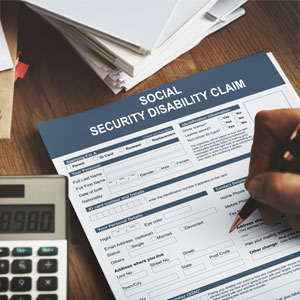
In this article, you can discover…
Social Security will look into your “substantial gainful activity”, meaning earnings derived from activity that requires you to significantly perform mentally or physically.
For 2025, the monthly substantial gainful amount limit is set to $1,620 per month for nonblind individuals. If you are earning at or above this dollar amount, Social Security will deny your disability claim.
If you are not being treated by a doctor or other medical specialist for your disabling condition, you will not have any medical evidence that supports your claims of having a disability. It is best to establish treatment, even if it’s with a free clinic, to help document your medical condition and its impact on your functioning.
When Social Security contacts you, it means that they need to know something or are missing key information. If Social Security sends you a notification to contact them and you or your attorney fail to do so, they will simply decide your claim with the information available to them, which often leads to denial. Always respond to Social Security communications promptly and then provide any information that they request.
It is not your condition or specific illness that determines whether you’re disabled; instead, it’s the impact of your condition on your ability to perform work activities. For example, you may have a back injury but still be able to work at a desk job. However, that same back injury might make it impossible for you to continue working at a job that requires heavy manual labor.
Any condition could potentially lead to a disability, depending on how it impacts you and your ability to continue working.
It is common for people to fail to list all of their disabling medical conditions. For example, say you have a back injury but also suffer from depression and hypertension. If you list only your back injury as a disabling medical condition, you are not giving the whole picture of your health.
A back condition on its own may not be disabling, but when combined with severe depression and hypertension, it may result in an inability to perform work activities. The more comprehensive you are in listing your medical conditions, the better.
To receive Social Security Disability benefits, you must first be insured under the Social Security program. Most people don’t realize that Social Security is an insurance program. You earn coverage based on the years that you have worked and paid into the program. To be fully insured, you must have earned 10 years of work credit or one quarter of a year of work credit for each year after age 21 to the age of your disability.
Additionally, you must generally show 20 quarters (of five years) of work in the 10 years leading up to when you stop working, though this rule is different for those under the age of 31.
Still Have Questions? Ready To Get Started?
For more information on What Happens When Your Social Security Disability Claim Is Denied, a free initial consultation is your next best step. Get the information and legal answers you are seeking by calling (352) 577-7746 today.